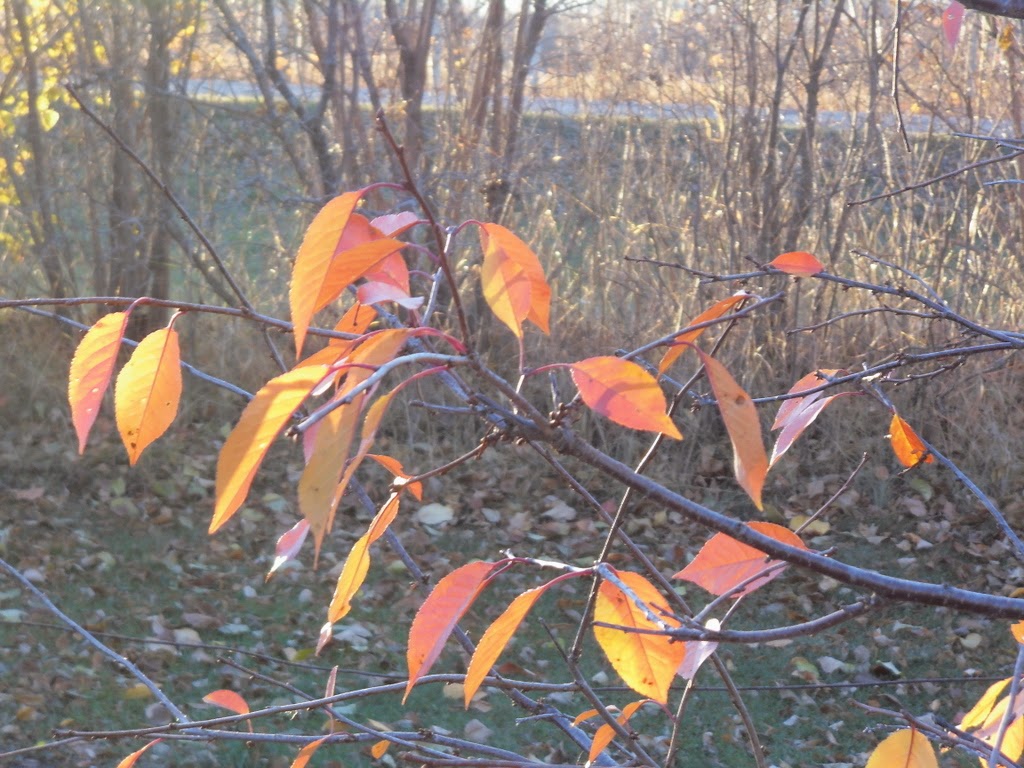The garden is at its most beautiful right now: delphiniums
are in full bloom, the many shades of blue offset by the warm yellow of the
perennial sunflowers and the bright red clusters of the Maltese Cross (I like
its German name, Brennende Liebe –
Burning Love). Lettuce and new potatoes are as much part of the menu as
spinach, Swiss chard and all kinds of herbs, peas are ready to be picked, and
beans, squash and cucumbers are blooming, tiny fruits already set.
One of my special joys is the blackberry bush I planted last
year – well, two, actually, but one of them has not really grown very much at
all yet – that has recovered very nicely from the damage sustained by mice over
the winter: they had gnawed off most of the bark, but thankfully left enough
for it to survive. Again I watched it grow and thrive, and not so long ago even
found it had formed buds. There is still a big question if these plants are
really suited for our rough climes, but they are supposed to be hardy for Zone
3, so I am hopeful.
By now I could almost feel the purple, juice filled little
cushions of the blackberries burst in my mouth. How great my horror, then, when
I found the leaves of many of the long branches nibbled, soon disappearing one
by one! After all this coddling someone seemed to be set on destroying my
dream. What could it be? At first I suspected a rabbit: the peas, too, had been
razed while they were still small, and at that time there were several rabbit
sightings in the yard. But why would it choose blackberry leaves, of all
things? Yesterday morning a flattened area in the raspberry patch right beside
the blackberry seemed to indicate that a bigger animal had made a bed for
itself there, breaking its branches as it had broken the tips of the blackberry
bush. A porcupine, maybe? A deer? There were no tracks in the dry soil.
But I couldn’t just sit by and watch my precious plants
slowly being reduced to shreds! I decided to keep watch for a night: if I didn’t
see the thief it surely would see me, and maybe that would be enough to deter
it from further visits.
Thus I gathered up my sleeping gear late last night, grabbed a flashlight and made my way out to the garden. Leo happily trotted out to the garden with me,
watched in respectful distance as I unfolded the tarp between the lilac hedge and the raspberry patch, rolled out the old blue
foam sleeping pad, shook out my sleeping bag and stuffed the pillow under my
head. Once I had crawled into my sleeping bag he plopped down beside me, only to jump up a couple of minutes later
to bark frantically at nothing in particular. Oh boy - was that going to be the
pattern for this night? Dutifully I sat up and shone my flashlight in the
general direction in which he had pointed his nose, but of course saw nothing.
I lay back, more awake than I would have thought possible that late at night,
snuggled into my sleeping bag and started to relax.

The sky was veiled by diaphanous white clouds, but right above me they started
to pull away, and soon the misty brightness of the Milky Way had replaced the
clouds. A blinking light traversed this window from southeast to northwest: a
plane. A moment later a steady point of light moved from north to south: a
satellite. I lay on my back and watched their progress, listening idly to the
far-away barking of a dog, the brief rumble of a truck engine from the highway
a couple of miles to the east. But there: a thin streak of light, vanishing in
the blink of an eye! Could I have been so lucky to have picked a night of
shooting stars?
Leo snuffled a couple of times before his breathing became
regular. I, too, was starting to get sleepy, my eyes still directed to the
cloud of distant stars above. Two more meteorites made their brief appearance before
I fell asleep, oblivious now to anything, be it thieves of blackberry leaves or
fairies flitting in the lilac hedge.
The first thing I became aware of was the sound of Leo having a breakfast
helping of raspberries: he was lying beside me and only had to stretch a bit to
reach the bottom ones. I was slightly moist: fog had crept in during the night,
but by now lingered only in little shreds between the trees, droplets of
moisture sparkling in the light of the as yet hidden sun. It was 6:15, and a
beautiful morning. I had neither seen nor heard a secret nibbler, and a brief
inspection of the blackberry bush convinced me that none had visited during my
watch either. All I had to show for my effort was a big bump in the middle of
my forehead: even though it's dry now the mosquitoes have not totally
disappeared.
Will I go back to keep watch again tonight? Clouds are
starting to roll in, and there is a chance of thundershowers. Maybe I will
postpone it for a while, hoping the thief got enough of a scare when he poked
his head through the lilac hedge.


















